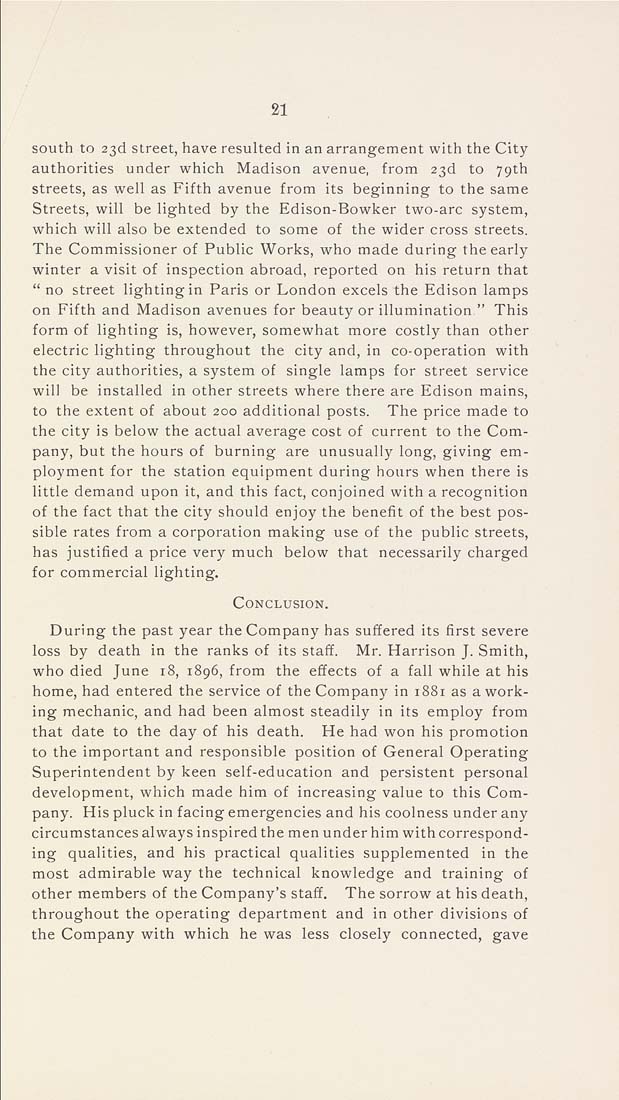21
south to 23d street, have resulted in an arrangement with the City
authorities under which Madison avenue, from 23d to 79th
streets, as well as Fifth avenue from its beginning to the same
Streets, will be lighted by the Edison-Bowker two-arc system,
which will also be extended to some of the wider cross streets.
The Commissioner of Public Works, who made during the early
winter a visit of inspection abroad, reported on his return that
" no street lighting in Paris or London excels the Edison lamps
on Fifth and Madison avenues for beauty or illumination " This
form of lighting is, however, somewhat more costly than other
electric lighting throughout the city and, in co-operation with
the city authorities, a system of single lamps for street service
will be installed in other streets where there are Edison mains,
to the extent of about 200 additional posts. The price made to
the city is below the actual average cost of current to the Com¬
pany, but the hours of burning are unusually long, giving em¬
ployment for the station equipment during hours when there is
little demand upon it, and this fact, conjoined with a recognition
of the fact that the city should enjoy the benefit of the best pos¬
sible rates from a corporation making use of the public streets,
has justified a price very much below that necessarily charged
for commercial lighting.
Conclusion.
During the past year the Company has suffered its first severe
loss by death in the ranks of its staff. Mr. Harrison J. Smith,
who died June 18, 1896, from the effects of a fall while at his
home, had entered the service of the Company in 1881 as a work¬
ing mechanic, and had been almost steadily in its employ from
that date to the day of his death. He had won his promotion
to the important and responsible position of General Operating
Superintendent by keen self-education and persistent personal
development, which made him of increasing value to this Com¬
pany. His pluck in facing emergencies and his coolness under any
circumstances always inspired the men under him with correspond¬
ing qualities, and his practical qualities supplemented in the
most admirable way the technical knowledge and training of
other members of the Company's staff. The sorrow at his death,
throughout the operating department and in other divisions of
the Company with which he was less closely connected, gave
|








